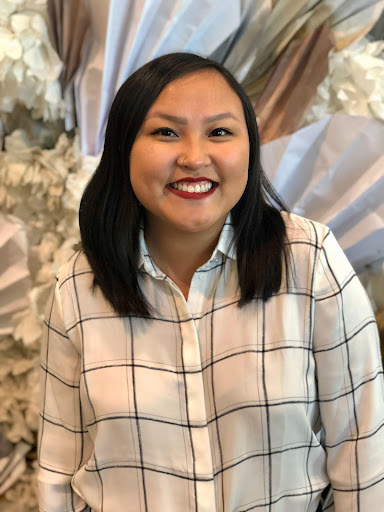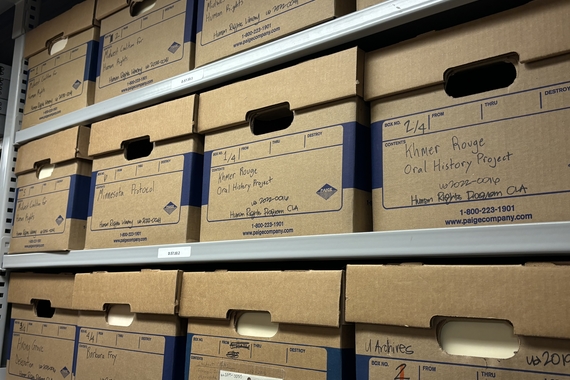Researching and Advocating Against Labor Trafficking in the US
The Master of Human Rights Degree Program strongly believes in the importance of integrating professional experience with academic knowledge in the field of human rights, making internships one of the central aspects of the program. Many students, despite challenges posed by the spread of COVID-19 and challenges related to working in the field defending human rights, succeeded in doing amazing work with their host organizations. In this Q&A series, we interview our students to learn more about their experiences. In the seventh Q&A of the series, we are joined by Shonni Krengel, a second-year Master of Human Rights (MHR) student, who discusses her internship with The Advocates for Human Rights.
Human Rights Program (HRP): Can you tell us more about your educational background, specifically at the University of Minnesota, and your professional experience? How did both contribute to your decision in choosing this particular internship and the host organization?
Shonni Krengel (SK): I went to the University of St. Thomas (UST) for my undergraduate degree. I was originally pursuing a degree in Psychology. I had a passion for research and did many successful research projects in my undergraduate career. But as I approached graduation, I realized that I no longer wanted a career in psychology. I did a lot of work with multicultural clubs and anti-racism work with administration at (UST) and decided that I wanted to pursue advocacy work as a career. Therefore, after taking a gap year, I applied and was accepted into the MHR program at the UMN. I quickly realized that I still loved doing research and therefore wanted to incorporate that into my advocacy work. Since I am still new to the professional advocacy realm, I remained unsure of what kind of careers were available that matched my interests. After some searching I found The Advocates for Human Rights (AHR) had an open “Graduate Research Internship” with the “Research, Advocacy, and Education” department of AHR. This internship gave me professional experience of research done for the organization and for general advocacy plans.
(HRP): Please describe your summer internship, the host organization, your role in that organization, and the projects you worked on.

(SK): Under the REA (research, education, and advocacy) department, I worked directly with the senior researcher and her different projects. The smaller projects consisted of organizing research trips to different greater Minnesota rural towns for the REA and RIP (refugee and immigration program) team to visit and interview organizations on legal resources for rural Minnesotans. The second smaller project was attending “Reclaim the Block” partner meetings to establish a network with them and aid in any workshop organizations for their non-profit. The big research project I did was complete legal research on the statutes of labor trafficking in all 50 states. I looked into when the statutes were passed, what the statutes contained, any additions/edits made, and key players in forming and passing the legislation. This aided my supervisor’s bigger project of advocacy for labor trafficking.
(HRP): How did the internship add to your professional experience and personal growth? and how do you see it impact your career trajectory?
(SK): This was a great organization to work for and gain professional experience in the realm that I want to pursue a career after I graduate. Like I mentioned earlier, I am still unsure of the different careers that mix advocacy and research. Therefore, getting the opportunity to complete this internship and gain experience into different careers helped me understand what I want to pursue after I graduate. From this experience, it solidified my drive for advocacy and research work. I better understand the difference between research within a non-profit and the kind of work a senior researcher does.
(HRP): Doing your internship during Covid-19 and focusing on labor trafficking with a new organization can be very challenging. What were the main challenges you faced during your internship on both a personal and a professional level? And how did you overcome them?
(SK): Since we are still amongst the pandemic, I completed my internship remotely. This I did not have a problem with, but doing this work remotely did make me feel less involved with the organization. I wasn’t able to get the smaller interactions with my supervisor or other people in the office to establish a close relationship. I also wasn’t able to network with other interns and grow relationships with them either. This made the internship feel much more impersonal. Within advocacy work, developing personal relationships is really important and I am saddened that I couldn’t develop close relationships within this internship.
Second, I felt that I was under-utilized as an intern. While I was given really important projects to work on throughout the summer, I felt that I could have been used more. For example, I was able to provide administrative assistance on the research for legal resources in greater MN, but I could have been used to analyze or collect data since I have excellent experience in both. To overcome this, I put more energy into my labor trafficking research. But overall I wish I could have been more challenged within my projects over the course of my internship.


